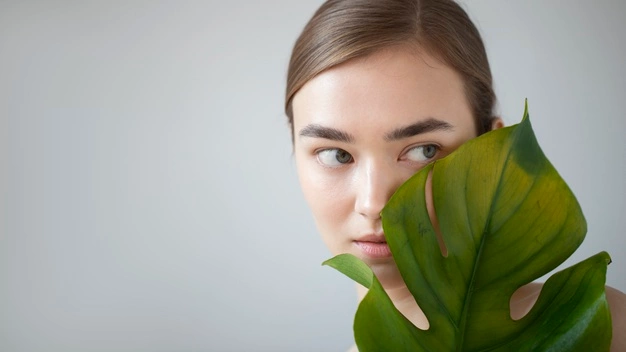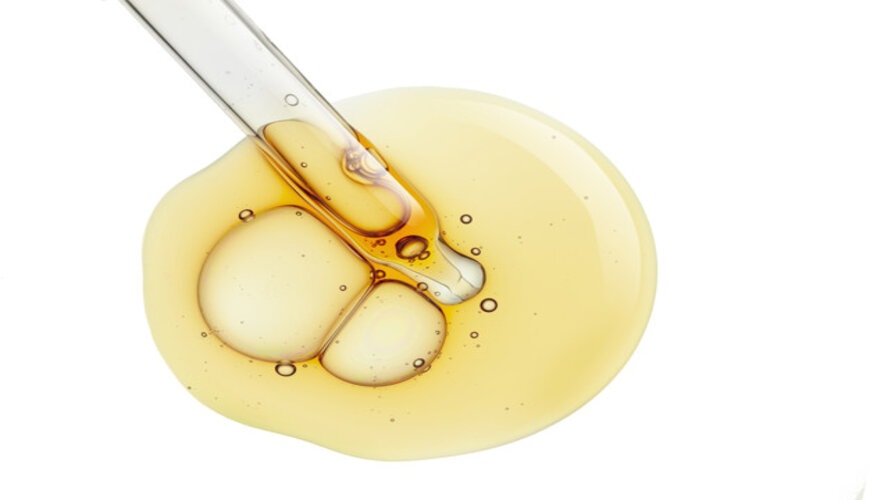Everything You Need To Know About Retinol Leave a comment
Everyone refers to retinol as the silver bullet that’s supposed to be the cure for acne, textured skin – basically any skin condition. (Don’t even get us started on its anti-aging effects.) Like with most products related to skincare, it can be difficult to know how to integrate it into your daily life. Should you use it during the day, or only at night? Should you combine it with Vitamin C…or would they cancel each other out? In this article, we’ll be answering the most frequently asked questions about retinol and showing you how to use it. Stay till the end for product recommendations!
What is retinol?
The retinol you’re familiar with from TV advertisements is known as an over-the-counter (OTC) retinoid. Retinols are vitamin A-based drugs used to treat a myriad of skin concerns, from signs of aging to acne. These are not to be confused with prescription retinoids, which are much more potent.
How does it work?
It penetrates deep into your dermis, and from there, it neutralises free radicals to boost the production of elastin and collagen. Retinol also increases the turnover rate of skin cells on the outermost layer of your skin. This allows new skin to generate faster, resulting in smoother, more even-looking skin. This process also increases the production of natural chemicals like hyaluronic acid.
Increased levels of hyaluronic acid are associated with moist, plump skin, while higher levels of collagen improve skin elasticity and prevent the breakdown of existing collagen in the skin.
How long before I can see an improvement?
The exact duration depends on the strength of retinol you’re using. In general, you need to be consistent with your application for a few weeks before you see any noticeable changes. However, if you haven’t seen any results in 12 weeks, it might be time to switch to a more potent concentration or a different retinol product entirely.
The benefits of retinol:
- Treats acne. Regardless of whether your acne is inflammatory or not, retinol has proven effective in reducing the appearance of existing blemishes and preventing the formation of new ones. Since acne is caused by dead skin cells and oil collecting inside the hair follicles in your face, the renewing effect of retinol means those cells are shed and replaced quickly.
- Fades acne scars. Most people refer to both changes in skin colour and texture as scarring. Regardless of which one you have, retinol has proven to reduce the appearance of scars on the skin due to its renewing effect.
- Prevents future wrinkles while minimising the appearance of current fine lines. The science behind this is simple: Retinol increases collagen production.
- Brightens dull skin. Retinol stimulates the production of new blood vessels in the skin, improving overall skin tone. It also has a calming effect on skin cells responsible for producing the pigment chemical melanin. In a study published in the Journal of Drugs in Dermatology, people suffering from hyperpigmentation observed a noticeable improvement within four weeks.
What can I combine retinol with?
You can mix retinol with:
- Moisturising ingredients like hyaluronic acid, ceramides and SPF. Since retinol can make your skin more sensitive to the sun and sunlight can deactivate it, we recommend you wear retinol at night. However, if you insist on wearing it during the day, make sure you put on lots of SPF.
Whatever you do, don’t mix retinol with Vitamin C, Benzoyl Peroxide and AHA/BHA acids.
Here’s why:
- Benzoyl peroxide and retinol cancel each other out, rendering them useless.
- While Vitamin C and Retinol don’t have this issue, they do have very different functions. Vitamin C is best used in the day, since it protects the skin from oxidative free radical damage, while retinol is more focused on repairing and rebuilding the skin. As such, it’s recommended you use Vitamin C in the day and retinol at night, so it can work while you sleep.
- AHA/BHA’s have an exfoliating effect. When you couple this with retinol, which already speeds up cell turnover, you can dry out your skin and cause more irritation
Answering frequently asked questions about retinol:
-
Does it cause skin peeling, itching etc?
Known as the “purging” phase, it’s not uncommon to experience more breakouts after starting to use retinol consistently. It’s important to note that retinol isn’t the culprit here – it’s simply bringing all the gunk that was hiding underneath your skin to the surface. Just make sure you’re introducing retinol gradually into your routine, and you’ll be fine.
-
Who shouldn’t use it?
People with rosacea should avoid retinol since it can cause skin irritation. For the same brightening benefits, opt for a product with bakuchiol instead. It’s rich in vitamin C and E.
-
What percentage should I start with?
We recommend starting with 0.25% in the beginning, before slowly raising it to 0.5%. A good way to know when you’re ready to move up is when your skin is less irritated to it (which generally could be within two to four weeks)
Our recommendations:
If you’re looking for a good retinol to start with, we’ve compiled a list of them here.
-
Vital-Perfection Wrinklelift Mask by Shiseido.
A common reason people don’t reap the full benefits of retinol is that it doesn’t penetrate fully into their skin. This could be due to a lack of exfoliation or that the product is simply too thick. This mask from Shiseido solves all those problems by delivering retinol right to the epidermis, protecting it from light and oxygen, so you get the maximum effect. The mask also deeply hydrates the skin, locking moisture in. When used consistently, it’s been shown to reduce dark spots and even out dull skin.
-
Coverderm Luminous Supreme Yeux by Coverderm.
This serum is made with hyperpigmented skin in mind. It’s been specially formulated to work with a host of premium ingredients like Niacinamide, Vitamin C, Fraxinus Excelsior Bark Extract. Unlike other serums, Coverderm’s version releases the retinol slowly into your skin, so there’s never any excess that goes to waste. When used consistently, it’s been shown to reduce the appearance of dark eye circles and under-eye bags.
-
Renew-Plus Body Serum Age-Defying Concentrate by Clarins.
This serum can be used all over your body, so you can use it in other areas you’re concerned about, like your shoulders, décolletage, and your knees. It uses a combination of anti-aging plant extracts and oils in conjunction with retinol to smooth away the outer layer of your skin and reveal a brighter, more radiant complexion.
We hope you’ve enjoyed reading this article! For more related articles, visit https://btega.com/blog/.
References:
https://www.marieclaire.com/beauty/a22777936/what-is-retinol/
https://www.health.harvard.edu/staying-healthy/do-retinoids-really-reduce-wrinkles
https://www.insider.com/what-does-retinol-do
https://www.instyle.com/beauty/mixing-skincare-ingredients
https://www.insider.com/retinol-faqs
https://www.healthline.com/health/beauty-skin-care/how-does-retinol-work#how-it-works


